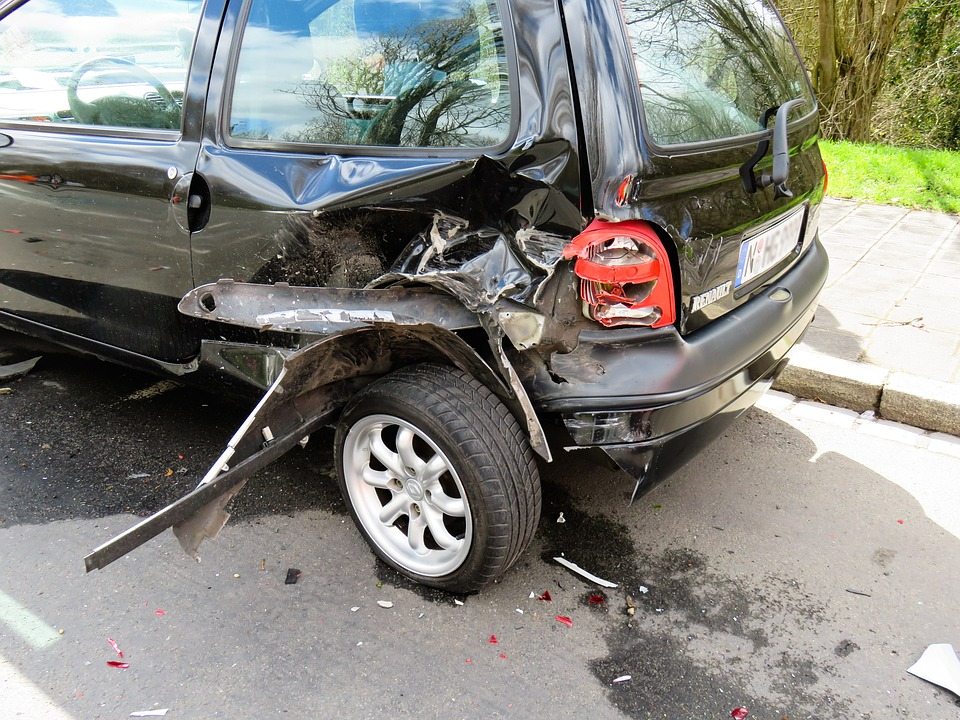Early Drivers: Being Prepared When Your Child Is in a Car Accident

For parents, a newly licensed teenage driver in the family is both exciting and stressful. You are proud of their accomplishment and independence but also worried about all of the potential problems that can arise with an inexperienced driver.
According to the Texas Department of Transportation, 9,892 sixteen-year-old drivers were involved in car crashes in 2014. Nearly 300 of those drivers experienced fatalities or incapacitating injuries. Most parents can think of nothing worse than losing a child this way or seeing them horribly injured, possibly for the rest of their lives.
While your child’s safety is paramount, you also hope they keep a clean driving record (and keep the car drivable). If a car accident does happen, though, you’ll have a lot to think about, and developing a sense of what to do beforehand can help you keep a level head. Whether you are in the car with your child or providing support over the phone, familiarity with Texas laws and processes will equip you to effectively navigate the situation.
Immediately Following the Car Accident
After any car accident, drivers of all ages should take specific steps for safety and legal reasons. FindLaw and State Farm suggest the following immediate actions:
- Regardless of your role in the crash, stay at the scene to assess any injuries or vehicle damage.
- Determine whether or not everyone is all right and call for medical help if needed. Do not move anyone with back or neck pain unless absolutely necessary.
- Move the cars to a safe place out of traffic if possible. If the vehicles can’t be moved, turn on hazards and place cones and/or flares if you have them.
- Call the police if there is any damage to people or property. Record the names andbadge numbers of attending officers and ensure that a police report is filed.
- Exchange names, contact information, license and plate numbers, and insurance information with other drivers.
- Be personable and cooperative, but do not discuss the details of the accident or say that you did anything wrong (and thus possibly admit legal liability) with other drivers. Wait for law enforcement to arrive.
- Talk to witnesses and obtain their contact information.
- Take pictures of damage and the scene of the accident as soon as possible. If you have “before” images for comparison, that’s even better.
- Inform your insurance company and be completely honest. Review the details of the police report with your insurer.
- Keep track of all related medical treatment as well as personal pain and suffering and their eventual impact on your daily life (missed work, inability to participate in hobbies or family events, etc.).
- Call Hossley & Embry to get a free consultation about your situation if any personal injury exists (keep in mind that injuries sometimes take days, weeks, or months to fully reveal themselves).
Later, when the immediate needs above are attended to, secure the damage valuation from your insurer and obtain other estimates if you don’t agree with it. Use caution when discussing the incident in person, over the phone, and on social media. Also be wary of early settlement offers that arise before complete costs – like future medical care – have been determined.
Texas Law and Young Drivers
A car accident can be especially frightening for young and less experienced drivers. As a parent, you will be able to offer greater support and more thorough information when you understand the laws and restrictions in place for young drivers.
In Texas, new drivers go through the Graduated Driver License (GDL) program. Phase One is a learner license or minor restricted driver license (MRDL) for new drivers under 18. They must hold the learner license for no less than six months. Phase Two is the provisional license for those who are still under 18. To secure this, drivers must finish six months with a learner license, be at least 16 years old, complete classroom and behind-the-wheel driver education sessions, and pass the driving test.
During Phase Two, teenagers still may not:
- Drive with more than one non-family passenger under the age of 21
- Drive between midnight and 5:00 AM (except for work, school, or medical emergencies)
- Use wireless communication devices while driving.
Violating these restrictions or committing traffic offenses can result in suspension or revocation of the provisional license.
Vicarious Liability
Vicarious liability is when a supervisory party, such as a parent, is liable for the conduct of a subordinate party, such as a teenage child. In Texas, this means that parents of drivers under 18 may be held liable for injuries and damages caused by their child in a car accident under certain circumstances.
Check with your insurer to find out if your policy covers any new teenage drivers, since not all providers do so automatically. If your child injures someone and is not covered by insurance, you could be at risk.
Hossley & Embry: Texas Personal Injury Lawyers
We hope no parent has to face the trauma of having a child involved in a car accident. Even if no one was injured, simply considering the “what if” can be haunting. If a minor in your care does get into an accident, please call us immediately at (866) 522-9265 to determine your best course of action and secure quality, experienced legal representation.
References
After a car accident: First steps. (2016). FindLaw. Retrieved from http://injury.findlaw.com/car-accidents/after-a-car-accident-first-steps.html
Ages of drivers in crashes. (2014). Texas Department of Transportation. Retrieved from http://ftp.dot.state.tx.us/pub/txdot/trf/crash-statistics/2014/25.pdf
Graduated drivers license. (2016). DriversEd.com. Retrieved from https://driversed.com/dmv/texas/gdl.aspx
Graduated drivers license (GDL) program. (2016). Texas Department of Public Safety. Retrieved from http://www.txdps.state.tx.us/DriverLicense/gdl.htm
What to do after a car accident. (2016). State Farm. Retrieved from https://www.statefarm.com/claims/resources/auto/what-to-do-after-auto-accident







